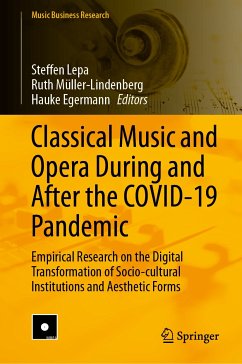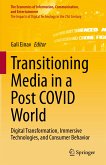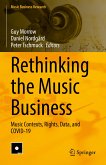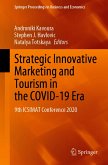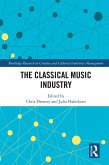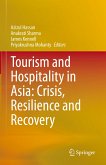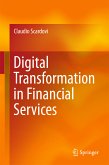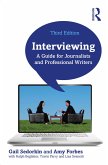The global COVID-19 pandemic, the resulting lockdown imposed in many countries, as well as related safety measures taken by governments and authorities, have posed significant challenges to classical music culture. However, they may also have had a stimulating effect on music festivals and opera houses' streaming offerings. This book brings together experts from the fields of musicology and music management to share their current empirical research findings on the pandemic-evoked digital transformation of the classical music scene, addressing either the institutional or the reception perspective. Furthermore, it documents discussions with opera dramaturgs and artistic directors, as well as music managers and event producers in the classical field, to share their practical lockdown experiences and current strategies in dealing with the digital transformation of opera. In this way, the volume combines the perspective of academic researchers with that of practitioners in the field.
This book is particularly useful for students and researchers in music and media management, as well as musicology. It is also intended to help practitioners from concert houses and opera management, such as dramaturges, artistic directors, marketing and communication directors.
Dieser Download kann aus rechtlichen Gründen nur mit Rechnungsadresse in A, B, BG, CY, CZ, D, DK, EW, E, FIN, F, GR, HR, H, IRL, I, LT, L, LR, M, NL, PL, P, R, S, SLO, SK ausgeliefert werden.

